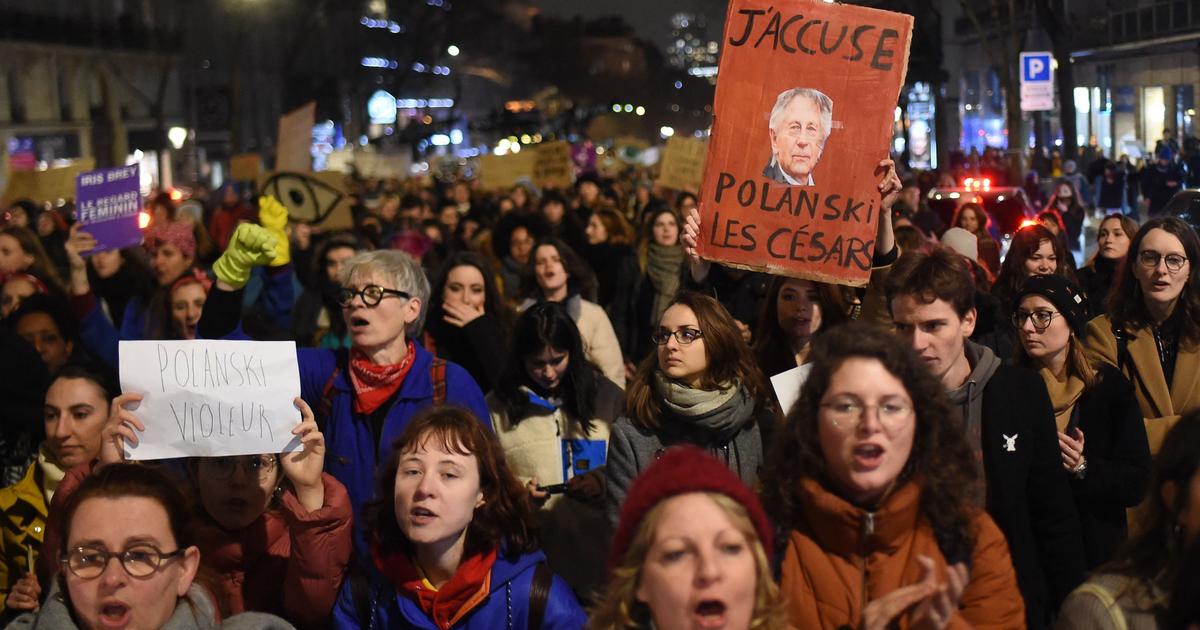A former student of ENS Lyon, Jean-Baptiste Mauvais is responsible for training in a federation of psychologists. He is the author of a thesis on “organizational silences” at the Institut de Hautes Études en Administration Politique (IDHEAP) in Lausanne.
Former ministerial advisor at the Porte-Parolat du Gouvernement, Frédéric Vallois teaches political communication at Sciences Po Paris.
Is there still a place for silence in the “
polycrisis or mega-crisis
” of the Coronavirus that Edgar Morin mentioned in a recent forum in Le Monde?
By its brutality, its comprehensiveness and its duration, the pandemic constitutes an unprecedented earthquake on the Richter scale of crises.
Against all expectations, silence played a paradoxical role in this unprecedented situation: that of trigger, even detonator.
The current crisis is anchored in original silences which have clouded the initial appreciation: missing, late, incomplete and contradictory information.
Astonishing finding, at a time when silence seems to be banished from our hyperconnected societies.
Read also:
"This epidemic reminded us of the value of rites"
This would be a point in common between the Covid-19 crisis and the Islamist threat: the more these subjects saturate the information and communication space, the more certain initial silences that contributed to make them possible seem in retrospect striking.
Let us think, for example, of the Obin report of 2004 on the signs and manifestations of religious affiliation in schools, published at the time as discreetly as possible by the Ministry of National Education.
Everything happens in reality as if the silence obeyed opposite dynamics: condemned to disappear in our daily public space saturated with sound, as a simple
physical, political and media
“
absence of noise
”, silence, as “
retention (voluntary ) information
”, thrives in crisis situations.
Paradox: never, in the ambient hubbub, has silence seemed so suspicious and incongruous, and never, in what is a permanent quasi-crisis or a chain of crises, has silence been so significant behind the scenes of information reaching us.
Reflux and renewed silence.
Does one prevent the other?
By its brutality, its comprehensiveness and its duration, the pandemic constitutes an unprecedented earthquake on the Richter scale of crises.
Long perceived as a "
treasure
" according to the historian Alain Corbin, silence, if it refers to different representations according to the times, is the object of laudatory evocations in many myths, stories, tales, sayings or proverbs: silence, solemn or moving.
The most famous, - "
the word is silver, but silence is gold
" - is taken from the Talmud.
In politics: in
L'art de se taire
(1771), Father Dinouart recalls that "
political silence is that of a prudent man, who does not say everything he thinks, who does not always explain his conduct and its designs and which, without betraying the rights of truth, does not always respond clearly, so as not to be revealed
”.
Jacques Pilhan, adviser to Mitterrand and Chirac, knew it well: silence, in the scarcity of speech, arouses desire and creates surprise.
There are necessary silences: state files (in diplomacy, as evidenced by the release of the hostage Sophie Pétronin), business and personal secrets (trade secrets, professional confidences, personal data, etc.), or, in the hollow of everyday life, a balanced silence / speech ratio alone capable of guaranteeing viable interpersonal communication.
To read also:
"The dreamed life of the monks"
Silence, however, seems promised to an imminent death: unwelcome, in the “
noise and fury
” of news channels and social networks;
banished, in the age of hyperinformation and hypercommunication.
Some nonetheless rehabilitate the use of silence, in political communication in particular, where the absence of noise also and above all has the value of a message.
The 21-second (!) Silence of Justin Trudeau, invited to react to Donald Trump's policy, is eloquent.
Peter Drucker, one of the pioneers of modern management, summed it up well: "
the most important thing in communication is to hear what is not said
."
Condemned to disappear or rehabilitated, silence?
This one keeps a stronghold: the crises.
Political, economic, ecological, sanitary, these “
unexpected events endangering the reputation and functioning of an organization
” (Otto Lerbinger) have one (one?) Point in common: one or more silences.
These can play a role at different times of the crisis: as triggers, at the very origin of the crisis, when crucial information has not been transmitted or taken into account (no response), and / or as aggravating factors throughout it, preventing rapid reaction, awareness, concerted thinking, or even, who knows, resolution.
The most important thing in communication is to hear what is not said.
Peter Drucker
Before the in-flight explosion of the shuttle Challenger in 1986, NASA engineers had first warned, and then ended up being silent, about the risks due to the unusual cold, and which could damage certain parts.
We now know that September 11, 2001 was also made possible by the lack of communication and information sharing between the CIA and the FBI in the months preceding the attacks.
Same observation in France, where silence weighed heavily on many crises (asbestos, Lactalis, Lubrizol…).
Silence, sometimes, is not the absence of words, but is lodged in half-truths, diversions, distortions, exaggerations or, on the contrary, minimizations: the initial silence of China thus allowed the accelerated diffusion and irreversible from Coronavirus.
We also think of the complicit silence of the international community itself in the face of the atrocities committed by certain regimes.
It would be possible - and necessary - to write a history of crises in the light of the multiple forms of silences: reluctance and intermittence of speech, implicit, innuendo, secrets and unspoken, omerta and taboos.
To read also:
Chantal Delsol: "Covid-19, we abolish existence by dint of wanting to protect naked life"
Recent research in organizational theory and in management on “
organizational silences
” provides stimulating typologies for better understanding them.
The "
quiescent
"
silences
result from the fear of attracting problems and conflicts: Donald Trump revealing to investigative journalist Bod Woodward that he lied to his fellow citizens about the deadly threat posed by the Covid.
Persistent silence so as not to be exposed to criticism, and / or, the second major category identified by research, indecisive and uncertain
silence
(“
diffident silence
”), due to doubt as to the validity of speaking.
Still other silences: resigned silences ("
aquiescent silences
"), more profound and powerful: speaking would be useless, will not change the situation.
Thus the resigned silence of the NASA engineers in the face of the pressures undergone to make the shuttle take off.
Another silence, prosocial silence, that which allows to protect a colleague, a relative, a comrade, or even opportunistic silence, aiming to keep for oneself the monopoly of information (for technological innovations), but also silence deviant, one whose silence harms others, by ignoring them, by belittling them.
The crisis is no longer a step that allows us to move forward.
She has become an infinite crisis
Myriam Revault d'Allonnes
Silences whose functions and motives are multiple, even if it means cohabiting to the point of internal contradiction: does the politician who does not communicate on the foiled Islamist attacks or on the radioactive cloud of Chernobyl in 1986, do so to protect the population by avoiding panic movements (prosocial silence) and / or to avoid exposure to criticism (quiescent silence)?
This is the difficulty - and therefore the interest - of this approach: it obliges, on pain of reductive simplism, to admit human complexity, in other words the various motivations, competing or even contradictory, in particular among political or economic leaders in the face of to critical and changing situations.
Moreover, in the era of social networks, events filmed live and relayed in a loop by news channels, these silences which would be characteristic of crises in turn question the distinction between “crisis” periods and “normal” periods. ".
In
The Endless Crisis - An Essay on the Modern Experience of Time
, the philosopher Myriam Revault d'Allonnes suggests that the crisis is becoming “
a global state, perceived as almost permanent, from which we do not see how we will get out [... ] The crisis is no longer a step that allows us to move forward.
It has become an infinite crisis
”.
To read also:
Olivier Faure: "The history of health crises proves it, it is not wise to criticize the French"
Sometimes heroic, sometimes criminal, silence owes its function and value to specific situations and contexts.
But if there are silences without crisis, unifying or repairing, there are probably and vice versa, no crises, organizational (accidents, bankruptcies, massive layoffs) but also (geo) political, economic, ecological, without silences.
Why, then, this stubborn difficulty in making this approach a tool for understanding our history as much as our current affairs?
Long defined in the negative, a simple absence (of voice), therefore not a message, silence, ambiguous and opaque, appears more difficult to define than speech.
Less attractive, too, for the Western compulsion for functionality, efficiency and productivity.
In addition, recourse to silence as an explanatory approach could quickly, in 2020, be accused of conspiracy, then preventively dissuading any recourse to this tool to decode the news.
The use of silence as an explanatory approach could quickly, in 2020, be accused of conspiracy
Finally, the silence (s) confront us with our obscure, elusive and even disturbing part.
Certain Freudians would see in our permanent availability for information flows the remainder of our dependence as an infant on the nourishing and reassuring maternal breast.
The reflux of silence in our hypermedia societies would then betray a regressive movement, going against the promises of technology as emancipation and access to collective adulthood.
It is urgent to hear these silences: in the mirror that current events hold out to us, citizens, companies, administrations, states or nations, silences forcefully reveal to us, for those who listen to them, what we are individually and collectively. and that we don't want to see, or hear: “
tell me what you are silent, I will tell you who you are
”.



/cloudfront-eu-central-1.images.arcpublishing.com/prisa/YYFLACLTQBGVXLURCA34LLTDVU.jpg)










